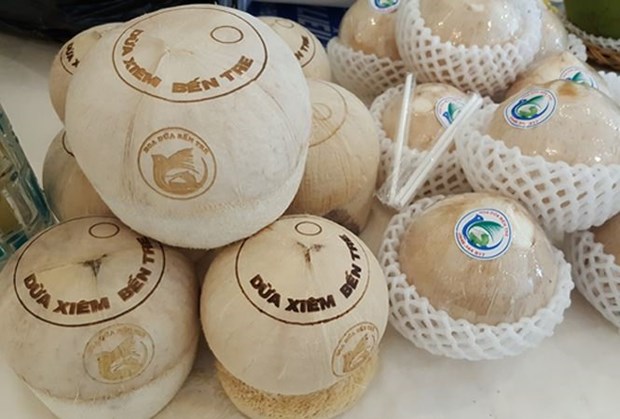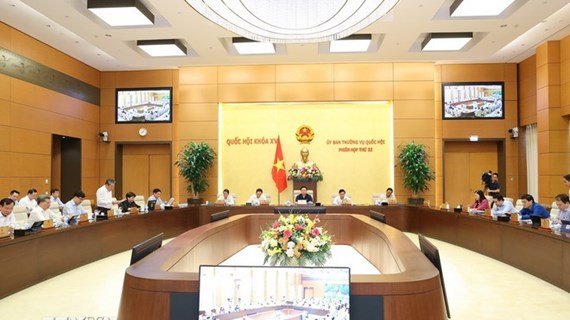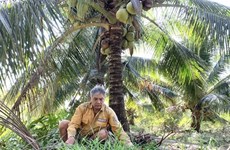Geographical indication protection will enhance VN products: experts
Registering for and protecting geographical indication (GI) for Vietnamese specialities are needed to protect, add value to unique products and promote their exports, experts have said.
 Ben Tre province’s green Xiem coconut, which has received Geographical Indication certification from the National Office of Intellectual Property of Vietnam (Photo: VNA)
Ben Tre province’s green Xiem coconut, which has received Geographical Indication certification from the National Office of Intellectual Property of Vietnam (Photo: VNA)HCM City (VNS/VNA) - Registering for and protecting geographical indication (GI) for Vietnamese specialities are needed to protect, add value to unique products and promote their exports, experts have said.
Delphine Marie-Vivien, a researcher in intellectual property and food law at CIRAD, a French research centre specialising in international agricultural and development issues, said: “The origin of food is important for consumers, who value tradition and cultural identity, are sensitive to specific sensorial and organoleptic characteristics of these products. Some consumers are willing to pay more to find such characteristics in the products.”
Vu Kim Hanh, Chairwoman of the High Quality Vietnamese Product Business Association, said GI could add value, increase access to new or existing markets, gain a competitive advantage, and reap more profits.
She gave the example of Cambodia’s Kampot pepper.
“Cambodia is a less developed country compared to us [Vietnam], but its pepper is sold at five times the price of our pepper since they have developed geographical indication for Kampot pepper.”
After obtaining GI protection for the product, Cambodia has done very well to promote and exploit the pepper in both local and international markets, she said.
“Kampot today is not only a place for people coming to buy pepper, but also an attractive tourism destination globally.”
According to the National Office of Intellectual Property of Vietnam, by the end of last year, Vietnam had a total of 69 GIs.
Most of the Vietnamese GIs currently are for agriculture products such as fruits and seafood, processed products such as fish sauce, rice and handicrafts.
The prices of protected GIs products have gone up by 20-100 percent, it said.
Hanh said Vietnam has many unique agricultural products that should be registered for GI protection, but the actual number is modest.
Because of the lack of official registration, foreign producers illegally used Vietnam’s GI, she said, citing the example of Thai fish-sauce producers sold products with a phony Phu Quoc name in Europe.
“In the context of international competition, you must know how to protect your assets.”
GI also helps fight against misuse or unhealthy competition, she said.
But even in the case of products which has already obtained GI certification, Vietnam has failed to tap the benefits, she said.
Talking about challenges of GI in Vietnam, Marie-Vivien said despite the political will to promote GI, there is still “little use of GI in practice in the market” due to a lack of awareness among producers and consumers and a lack of interest among local stakeholders.
Other issues include “lax implementation of quality control and lack of efficient collective action to manage GI.”
Hanh said there is little involvement by relevant authorities in the promotion of GI and GI products.
Marie-Vivien said it is necessary to improve awareness among producers and consumers through communications strategies and exhibitions of GI products.
Besides, strengthening collaboration between producers after GI registration and implementing “efficient control systems before commercialisation and efficient repression of frauds on the market” are needed, she said.
Hanh said: “Obtaining GIs was an initial advantage to producers. But they should pay more attention to ensuring product quality and innovation to add more value to their products to gain an advantage.”-VNS/VNA













